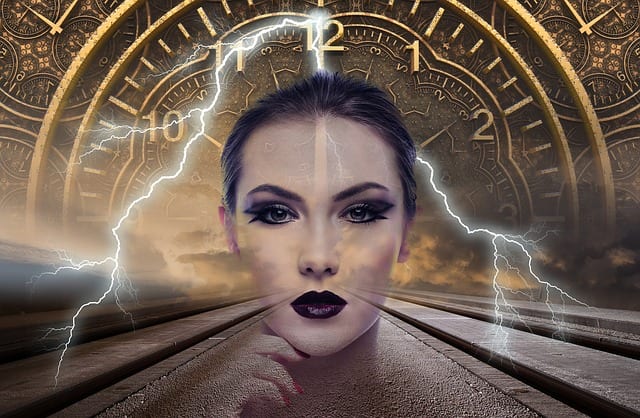
A premonition is a strong feeling of something that is about to happen. From time immemorial, a select few people have been having premonitions. Often, these premonitions lead to life changing events, both for the individuals and society as a whole. Being able to ‘look into the future’ has been a mystery that the human race has tackled for as long as time can tell. From the Biblical prophets, right up to Nostradamus and many after him, such ability has always inspired awe.
There are many questions related to this strange phenomenon. What triggers such insights? Can everybody have premonitions? If not, what determines who can and who cannot? Can we train our minds in such a way that we are more likely to have them? Is there a divine force or a higher power at play? Are such premonitions planted into selected people for a purpose? Depending on the nature of the premonition, our questions may vary. But one thing is certain- it is a baffling area to study.
A brief history of premonitions
Since antiquity, thinkers and philosophers have been battling with the idea of premonitions. Throughout history, prophetic pronouncements and fortune telling have surfaced in every civilization across the world. While most such precognitive ideas seem to have appeared in dreams, there have also been waking premonitions. Often related to religious ideas, it is interesting that this also seems to happen outside religion- common people who seem to have a personal lens looking into the future.
Aristotle was skeptical of premonitions. In his treatise, ‘On Prophesying By Dreams’, one of the Parva Naturalia, he claimed that most of these were mere coincidences. He mentioned that we cannot “dismiss it with contempt or give it implicit confidence.” Aristotle went on to say that if it is so, “the senders of these dreams must be the gods.” However, “those to whom they are sent are not the best or the wisest, but merely commonplace persons.”
What is interesting is his argument with Democritus about the origin of premonitions. Aristotle believed that it was the dreamer’s sense which reached out to the future. Democritus, on the other hand, argued that it was the emanations from the future that were sent back to the dreamer. Like the Greeks, other cultures too had seers who had strong feelings about what was to come. The ancient Celtic druids, the Chinese Oracle Bones and the Indian ‘voice from the sky’ are good examples of this.
Perhaps the most famous character in the history of precognition is Nostradamus. A reputed seer, his treatise Les Propheties – literally translated to the prophecies – is a much talked about book. Nostradamus claim to base his predictions on ‘judicial astrology’ – an astrological judgment of the quality of events. Using this judgment, he would assess the potential outcome of such events.
Kinds of premonitions
There can be several kinds of premonitions. These can vary in intensity and specificity, depending often upon the person within whom they occur. Some people, who are more likely to experience them, are sometimes referred to as ‘psychics’. Most people have had a premonition of some kind or the other. The problem we face is that very few of these are ever documented.
· Premonitions due to ‘psychic bonds’ – Often, premonitions will occur between close relatives, where the psychic bonds are the strongest. Here, it can be argued that there is a genetic component, which is yet to be understood.
· A premonition about world events – Nostradamus is probably the best example of this type of premonition. Another example is the claim by many people of having preconceived the 9/11 attacks in New York.
· Vague premonitions – Sometimes, the premonitions can be less certain in their nature. For example, you feel sad generally all day before finding out that a close friend has expired.
· Instantaneous premonitions – These can appear at a moment’s notice. For instance, the phone is ringing and you just know who’s calling.
· Religious premonitions – All the great religions of the world include some form of prophecy, which tells us of future events that are yet to take place.
As we can see, premonitions are of various kinds and tell different tales. Our understanding of them is limited because of the lack of documentation. But we do know that they occur and some people are more likely to get them more often. Why is this so?

What does religion say about premonitions?
“For the Lord God does nothing without revealing his secret to his servants, the prophets.”
Amos 3:7
As we know, all the great religions speak of prophecies and premonitions. The idea from a religious angle is that God speaks to us through the chosen few. These people are told of the things that God has planned. In many religions, notably Christianity and Islam, the final prophecy is the judgment day, which will occur after certain conditions have been met with.
But this is not limited to the prophets. Often, people have claimed that God has spoken to them. In these conversations with God, it is not uncommon for him to have informed them of an upcoming event. It can be as simple as the birth of a child; perhaps a job that one has applied to. It can also be as massive as a great natural catastrophe.
In the Hindu and Buddhist traditions, monks who meditate over long periods of time reach a state of Moksha (Hinduism) or Nirvana (Buddhism). It is believed that they then develop precognitive abilities. They have trained their minds and bodies to the extent where they can bend time. Having control over time and space lets them look into the future and past. Their experience is different from the Biblical tradition where God speaks directly to the individual.

Science and premonitions
Premonitions present themselves as a paradox to science. While they cannot be proved by the scientific method, which requires falsifiability and repetition, science has inquired into this phenomenon from time to time. Dr. Sigmund Freud and Dr. Carl Jung made some of the epoch making insights into premonitions. Freud especially studied premonitions in dreams and wrote about it in his treatise ‘The Interpretation of Dreams’. In an interview in 1959, Jung referred to ‘dreams of the future’, claiming that only ignorant people could deny that they exist.
Dr. Larry Dossey has worked in the area extensively and written about it in his book ‘The Science of Premonitions’. He says that there are five criteria that can point us in the direction of recognizing a premonition.
· Vividness – An almost camera like quality.
· Recurrence – A constant reminder from one’s subconscious mind.
· Physicality – A connection to physical symptoms.
· Connection with death – Many premonitions have a link with either one’s own death or someone else’s.
· Shared experience – If the experience is shared with someone close.
Dr. Dossey has hypothesized the theory of ‘one consciousness’ in his book ‘One Mind.’ He claims that there is a single consciousness, which runs through the entire universe. This is similar to the Hindu claim of Brahman. It is interesting that the Nobel-prize winning Physicist Erwin Shrodinger had claimed a similar thing. He said in his essay ‘Mind and Matter’ “multiplicity is only apparent, in truth there is only one mind.” This, he borrowed from the Upanishads – the ancient Indian commentary on the Vedas.
In a controversial study by Dr. Daryl Bem at Cornell University, students were asked to guess the appearance of an object. It was observed that they did so correctly more than half the time. This, of course, could be a mere coincidence. But a far more obvious example of premonitions is observed in the animal kingdom. Many beasts of the land and sea seem to communicate in ways that defy our understanding. In fact, it also happens across species. This was observed in Africa, when an entire herd of African elephants appeared on their own to mourn the death of ‘The Elephant Whisperer’ Lawrence Anthony.
Many scientists have considered the relation that premonition has with other intuitive phenomena like artistic expression, epiphanies and what is called the ‘Eureka effect’. However, the lack of observable data makes it a difficult exercise even for the most open-minded scientists.
Conclusion
Our understanding of premonitions is very basic at this point in time. As we learn more about it and begin unraveling the mystery surrounding it, one thing is certain. There are forces greater than us at play, whether we know them or not. It would be safe to assume that some people have a greater predisposition to psychic or precognitive experiences. But the question remains. Is this something that is ingrained or can it be cultivated?
Looking at the long history of such phenomena and the recent scientific inquiry into it, we are inching towards a better understanding and possible acceptance of premonitions as something very real. What we can do as individuals is notice when we have such experiences and write them down. That way, we’ll contribute to the documentation, even if it is private and anecdotal.

